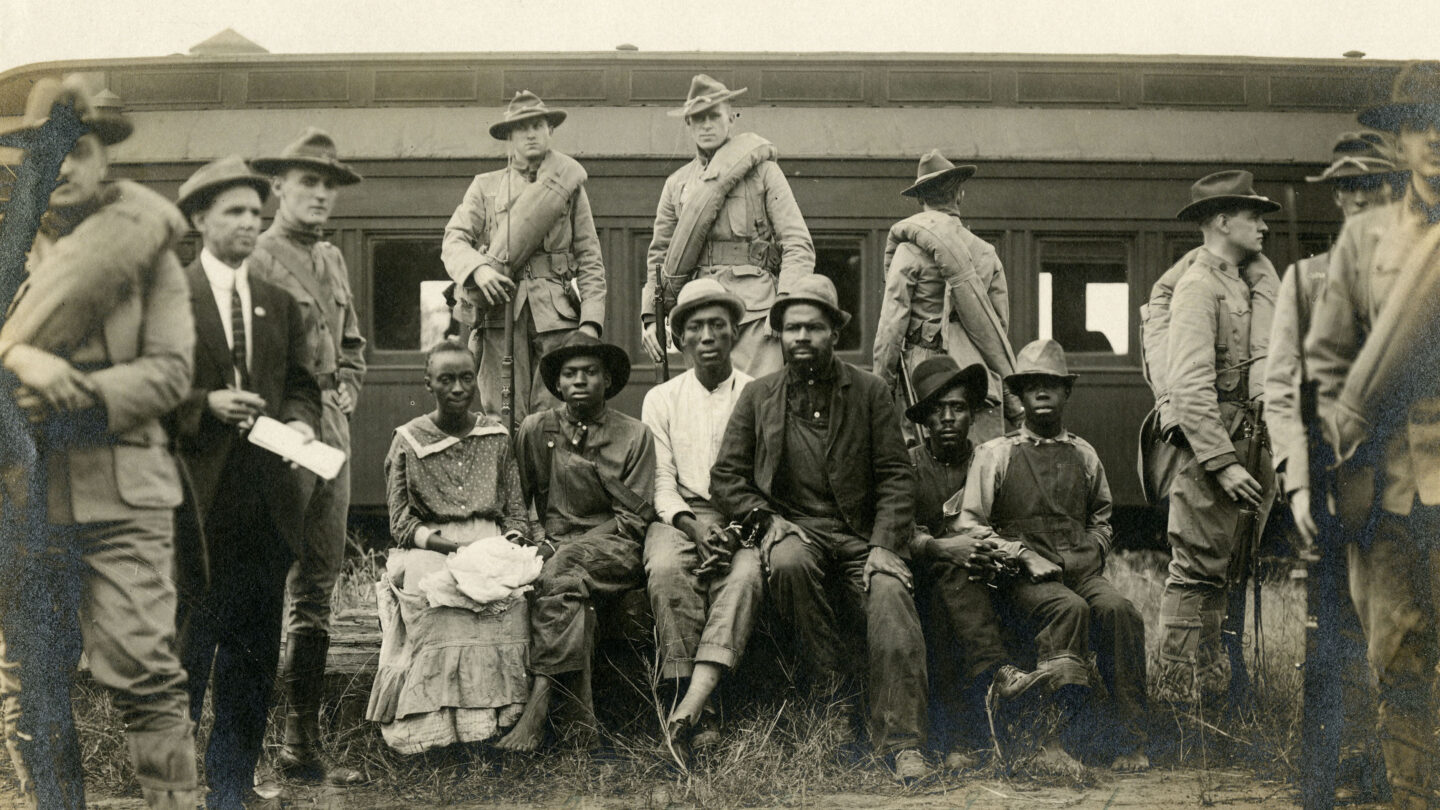Atlanta History Center is uncovering and sharing the histories of the descendants of Forsyth County’s Black residents who were expelled in 1912.

In September 1912, white residents in Forsyth County accused three Black men of sexually assaulting Mae Crow, a white woman from the small community of Oscarville. Sheriff Bill Reid arrested Rob Edwards, Ernest Knox, and Oscar Daniel. A mob of white locals lynched Rob Edwards in downtown Cumming while Ernest Knox and Oscar Daniel were executed after being convicted by an all-white jury. White residents forcibly displaced more than 1,000 Black residents from Forsyth County in response to the accusations and informally banned Black people from living there until the 1990s.
Atlanta History Center is collecting the histories of descendants of expelled Black residents. As part of an initiative to continue research and bring awareness to the events of 1912, we aim to provide resources for descendants to explore and tell their family histories as conversations continue in Forsyth County, and across the country, on how to reconcile with the past.
Atlanta History Center invites descendants of the displacement to contact us at forsyth1912@atlantahistorycenter.com.
Explore
-
Story
In 1912, Five Black people were arrested for sexually assaulting and murdering a white woman in Forsyth County. One of the five was lynched and the others received unjust trials. These events led white residents of Forsyth to force more than 1,000 Black residents to leave the county, creating the environment for a county that retains a majority –white population.
-
Story
In 1912, more than 1,000 Black people fled racial violence in Forsyth County, GA. Researchers from Atlanta History Center used historical records to trace the locations and lives of these displaced residents, revealing significant changes in their economic status, occupations, and living arrangements as they settled in nearby counties and beyond.
-
The UnderCurrent
Discover the real story behind Lake Lanier’s dark history and ongoing racial tensions. Lake Lanier, a popular local attraction, has a dark history and ongoing racial tension. While the myth of flooding a predominantly Black town named Oscarville is untrue, the mass exodus of Black residents from Forsyth County did occur due to racial violence.
-
Exhibition
Nearly 40 years ago, more than 15,000 people marched through Forsyth County during the Brotherhood March. Coinciding with the newly created Martin Luther King Jr. Day, the 1987 demonstration made national headlines when it brought attention to one of the last surviving sundown counties in Georgia.
-
Story
George “Ed” Merritt’s life encapsulates a journey from the racial violence of early 20th century Georgia to becoming a local civil rights champion in Buford. Born in 1913, after his family fled racial terror in Forsyth County, Merritt served in the U.S. Army during World War II and later became a community leader. His political career peaked when he was elected to the Buford School Board in 1973, reflecting the broader struggle for civil rights in Georgia. Merritt’s legacy, highlighted by his advocacy for voting and education, endures in Buford, where a street now bears his name.
-
The UnderCurrent
Atlanta’s Historic Bagley Park, originally a Black neighborhood established in the 1870s, was demolished in the early 1950s to create a public park. Despite promises to maintain the Bagley Park name, it was renamed Frankie Allen Park in 1980, erasing the community’s history. Through efforts by Buckhead Heritage Society and Elon Butts Osby, the park’s name was recently restored to honor its origins and preserve the area’s rich history.
Related. Content.
-
Page
1912: The Forsyth County Expulsion and Its Aftermath tells the story of the expulsion of more than 1,000 Black residents from Forsyth County, Georgia and its lasting impact on the families affected.
-
Story
Listen to Patrick Phillips, author of Blood at the Root: A Racial Cleansing in America, explain the events of 1912 .
-
Story
Listen to an excerpt of Chase Evans’ essay for the Forsyth Descendants Scholarship.
-
Page
1912 Podcast InterviewsThis collection of audio recordings includes interviews with descendants of the Strickland, Bagley, and Merritt families and others connected to the events in Forsyth County in 1912 through scholarship or community involvement.

